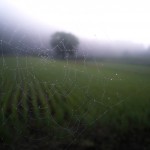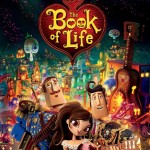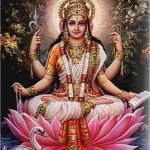My relationship with fairy tales is complicated. I loved them growing up. I enjoyed the Disney animated versions – mostly the old school Disney ones; I was 14 when The Little Mermaid was released (the beginning of the ‘newer’ era of Disney animation). That one in particular I adored: the singing, the underwater motif, the bright colors, the music.
But discovering feminism in my early 20s killed that love dead. And for good reason. I look back the tropes of Disney fairy tales, especially the more recent crop, and I shudder. The Little Mermaid is especially awful. The mermaid, Ariel, actually gives up her voice, to win the prince. Everything is surface level attraction. Being pretty is the highest ideal for girls and women. The female characters do very little. They are made magical via some external source and the kiss of the prince is what saves them.
Looking back on my adolescence I see how insidious this was, and how I fell prey to it. Throw on my own performance anxiety and I was a hot mess, ripe for the allure that something outside myself could save me, would make me special (above and against all other girls – specifically girl), that I would then win the Boy and through my connection with him be considered fantastic. Which is ironic seeing as how I dated the band nerd for most of high school (it should also be known that he was kind, funny and a musical genius, and sadly I lived vicariously through his talents).
I also loved the Grimm Brothers versions of fairy tales. My mother had two beautiful cloth editions of the tales, one brown Grimm Brothers, the other a blue Hans Christian Anderson edition. I knew that the ‘original’ tales were more complex, bloody, mean, and interesting. But I hadn’t revisited those books in two decades. Not until I had a child of my own.
My 4-year-old son adores being read to. One day he went to the bookshelf and pulled down the brown book of Grimm’s’ fairy tales. We are now working our way through both volumes. Strange bedtime stories, indeed! And yet, we both enjoy the odd tales. He gets scared, indignant (he often will insist that his alter ego, Laserer Dalek, will intercede and set things to rights), and triumphant. He loves the last line about how the couple ends up married happily for the rest of their days.
What I’m learning from re-reading these tales is just how excellent they are as morality tales and as a magical primer. I am sure there are many books written on both of these topics, but it’s not an area I’ve done a lot of critical reading on. I remember reading a short news article by a child psychologist suggesting that the violence in fairy tales (the older versions) was more than suitable for little minds, and was in fact helpful. Little children are dealing with issues of power in their own lives (big enough to think and do, but not big enough to do what they imagine, and they can’t quite read the rules or even know what all of the rules are, etc). Their own physical urges get to be acted out through the stories. Having a four-year old of my own, that makes a lot of sense to me!
What I’m learning is that the values demonstrated in the stories are ones I like: be kind and generous, greed is almost always a person’s downfall, cleverness can be good or bad, but depends on the quality of the clever person’s heart, keeping your word is of utmost importance, those in power can be overcome/overthrown/replaced by a clever person, there will be many obstacles in life so meet them with all your wits and courage and heart. These things work whether male or female. Yes, there are some archaic gender roles in the stories, and the witches are always old ladies, but these are not as problematic to me in their own context as I was expecting them to be.
Magically, my son and I are learning that 3, 7, and 9 are magic numbers, that what makes a spell is often its undoing, that plants and animals have spirits, that kindness to others extends to all living things, not just humans, that plants and animals can be our guides and helpers if we learn to communicate with them, that men and women can create magic, that there are consequences to our actions, both magical and mundane. I think these ‘magical’ lessons are also rather excellent lessons in general!
So fairy tales have been on the tip of my tongue lately. This made my trip to see Snow White and the Huntsman more enjoyable than it otherwise might have been. If you’ve not seen the movie, please be warned: SPOILERS AHEAD.
First, let me say that my expectation of the film was this: weak plot, beautiful effects, pretty to look at, weak actress in Kristen Stewart. I was right on – and I still walked out of the theatre loving this movie.
Cinematically, it’s both beautifully done, interesting and compelling AND ALSO weak, inconsistent, and tedious. The pacing could have been better for sure. Several of the criticisms I’ve read from various places seem to forget that this is a fairy tale: plot is already weak, characters are already thin, tropes are what they are. What might be weaknesses (and are) in modern story telling, actually make me enjoy the film more for its acceptance of the fairy tale trope!
As far as the fairy tale was concerned, I thought it had many of the elements I praised above: the quality of a person’s heart is their beauty and strength, kindness and communication allows us connection to others, both human and non-human, power can be overcome and undone, power-with is greater than power-over, males and females both can be agents of magic and power. There were many beautiful moments in this film. The graphics were incredible. I loved the black shattering glass men, the fairies, the colors and textures and all around griminess of the sets and costumes. The use of the white hart was heart-stoppingly beautiful (and seemed like an homage to Miyazaki’s Princess Mononoke). I enjoyed how this was a love story and not a love story at the same time.
But let’s talk about the absolute best part of the film: Charlize Theron’s Evil Queen. I sincerely hope she wins an Oscar for this performance, because she was amazing. She turned what could have been a one-dimensional Evil Queen into a complex, rich, evil queen who inspired pity and curiosity, fear and wonder in me. The rich symbolism that was used to spell out her corruption were joys to behold: the black throne carved with medieval skeletons, the ornate costumes, the abundance of ravens. With this character we see the Dark Arts employed: scrying, shape shifting, vampirism (both energetic and cannabilistic in the form of eating raw animal hearts). We see the cost of magic, of power. Power isn’t necessarily bad or evil, but the greed and obsession that fuels the Queen’s magic is. We see the profound toll this has on the individual and those surrounding her.
Ms. Magazine’s blog has a post on the reasons not to see this movie. I can see their points, but I think they miss the big fairy tale picture. I also disagree with their idea that this film vilifies female aging. I think it actually makes the reverse point: that avoiding aging, that the beauty that women have to cling to for power in this world, is unnatural and corrupting, that merely physical beauty is limiting and constricting.
The Evil Queen and Theron’s acting is the complete antithesis of Snow White, particularly as acted by Kristen Stewart. Stewart’s Snow White is vapid, confused, limp and pathetic. The character could have emphasized the beauty of will, strength of heart, compassion, and the magical connection that is created when relationship is forged – whether with trolls, humans, dwarves or birds. We are told of these things, not shown. Stewart’s Snow White has no spine and I felt cheated at the end when she returns to life and gives her impassioned speech. When she duels the Evil Queen I felt with bitterness that Stewart was unworthy to be Theron’s foil. Any anti-feminist sentiment about this movie can most likely be blamed entirely on Stewart (and perhaps on the director who thought her interpretation was ok). While the dialog was not remarkable, the character, situations and people around Snow White indicated that a level of subtlety was intended, and was grossly missing from Stewart’s portrayal.
Despite the serious flaws in this film I will happily watch it again. I love the resurgence of magic and fairy tales in cinema – from Hiyao Miyazaki’s animation, to Pan’s Labyrinth, to these sorts of retellings. I’m also happy to be exploring fairy tales again in their written form. I have much to learn.
Have you seen this movie? What did you think? Do you have favorite fairy tales? If so, what are they?















